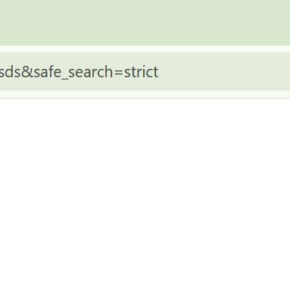Facebook users are reporting a surge of shoe ads referencing popular footwear retailer DSW and promoting unbelievable Vans deals. The ads, featuring distinct phrasing like “DSW Limited Online Sale”, direct shoppers to fraudulent websites pretending to sell deeply discounted Vans. This comprehensive guide will break down exactly how this “DSW Limited Online Sale” scam operates, tips for spotting and avoiding it, and steps to take if you were duped.

Overview of the “DSW Limited Online Sale” Scam
The scam ads in question generally start with “DSW Limited Online Sale” or a similar variant suggesting DSW is holding an exclusive online promotion. They tout limited-time deals up to 90% off on trendy Vans shoes – typically $60+ retail – for implausible prices like $15.
However, clicking these Facebook ads leads not to DSW but external websites completely unaffiliated with DSW or Vans. These fraudulent storefronts are designed expressly to deceive and steal from visitors lured in by the ads’ lies of discounted Vans.
The sham websites feature all the standard scam hallmarks like fake customer reviews, stolen manufacturer images, dubious contact information, missing business details, and more. Unsuspecting shoppers duped by the ads end up handing over sensitive data and payment information, receiving nothing but compromised finances and identities in return.
This “DSW Limited Online Sale” con brilliantly exploits DSW’s brand familiarity and the universal demand for Vans shoes. The unbelievable discounts stoke irrational urgency that pushes viewers toward the ads with no scrutiny. But in reality, this is an elaborate bait-and-switch fraud exploiting consumer trust and psychology for profit.
How the “DSW Limited Online Sale” Facebook Scam Works
The scammers behind this fraudulent shoe discount scheme execute an intricate bait-and-switch con designed to dupe Facebook users. Here’s how it unfolds:
- Scam ads promoting a fake “DSW Limited Online Sale” are posted on Facebook touting steep Vans discounts.
- The ads promise deals like “Vans Only $15 at DSW” – up to 90% off – to create perceived urgency.
- Phrases like “Limited Time Only!” impose false time constraints to pressure hasty purchases.
- Unique phrasing like “DSW Limited Online Sale” baits the curious to click for more details.
- Clicking goes not to DSW but an elaborate fake Vans website to continue the ruse.
- The scam site has fake reviews, stolen images, and limited business details to seem real.
- Shoppers are prompted to enter payment and personal information to purchase the Vans.
- No products are ever shipped, while user data and money are stolen by scammers.
- Stolen details are used to commit further fraud through identity theft and unauthorized charges.
- The scam persists as new misleading ads are posted to trap more victims.
What To Do If You Are Scammed
If you engaged with one of these fraudulent ads or websites, take these steps immediately to mitigate damages:
Report the Ad and Website
Alert Facebook and Google about the deceptive ad and scam website so they can swiftly take down both. This helps curb the scam’s spread and protect other users.
Contact Your Bank
Call your bank ASAP if you shared card information or purchased anything. They may be able to stop pending transactions in time. Discuss cancelling compromised cards and disputing charges.
Change All Account Passwords
Even if you didn’t share passwords directly, change them now as a safeguard. Prioritize accounts associated with finances, shopping, email, and social media that could expose you to further fraud.
Place Fraud Alert and Credit Freezes
Contact one major credit bureau to implement an initial fraud alert. This requires verifying your identity when opening new credit. You can also completely freeze credit reports to fully block access.
Submit an Identity Theft Report
Filing a report with the FTC provides additional recovery protections. It also entitles you to free credit reports to monitor for further misuse.
Review Statements and Credit Reports Closely
Carefully check all your financial statements and credit reports for any unrecognized activity indicating identity theft. Dispute any suspicious transactions with associated institutions immediately.
Avoiding “DSW Limited Online Sale” Scam Ads
While online scams grow more advanced, you can outsmart them by watching for telltale warning signs and taking preventative measures:
Research Unfamiliar Sites Thoroughly Before Providing Info
Never share your data with a website you haven’t fully vetted first through investigating reviews, listed address, contact info, domain history, and other validation checks.
Watch For Outlandish Discounts And High-Pressure Tactics
Massive price cuts paired with manufactured scarcity via “Limited Time Only!” etc. are favorite tricks scam ads use to provoke urgent, irrational purchasing devoid of due diligence.
Select Mainstream Payment Options With Buyer Protections
Legitimate online retailers offer expected payment methods through reputable processors like Visa and PayPal with associated fraud protections. Scammers tend to only offer options like wire transfers or gift cards that are untraceable.
Utilize Browser Extensions To Vet Retailers
Tools like Facebook Ad Analyzer and Web of Trust integrate crowdsourced reporting and threat intelligence to efficiently flag untrustworthy sites right in your browser as you shop.
Only Transact Directly With Established Online Stores
Stick to major national retailers you are familiar with. Avoid clicking promotional links, even from social media – go directly to a known legitimate business using saved bookmarks or official account handles.
Rely On Credit Cards For Purchases Over Debit Cards
Credit cards offer much stronger fraud protections and limit consumer financial liability. Debit cards dip directly into your bank account, put your money at risk, and have fewer protections.
Leverage a Password Manager For Security
Services like 1Password and LastPass enable strong, unique passwords across all accounts and secure storage. This way no single compromised password puts all your accounts in jeopardy.
Adjust Social Media Privacy Settings
Review your security and privacy configurations on all social media. Tightening these controls limits personal data exposure to scammers seeking info to exploit in cons.
Frequently Asked Questions
What is this “DSW Limited Online Sale” scam on Facebook?
It is a bait-and-switch scam using ads about a fake DSW Vans promotion to send shoppers to fraudulent sites that steal personal and financial information.
How can I identify these scam ads?
Look for implausible discounts like “Vans Only $15”, urgent call-to-action phrases, and being redirected away from DSW’s real website.
What happens if I purchase from one of the scam websites?
Your information will be stolen but you won’t receive any discounted Vans. Expect compromised accounts, unauthorized charges, potential identity theft.
What should I do if my information was stolen via this scam?
Contact your bank immediately, report the ad and website, change all account passwords, set up fraud alerts, file an identity theft report, monitor statements.
How can I avoid this and similar Facebook scams in the future?
Carefully vet unfamiliar sites, watch for outlandish discounts, avoid high-pressure tactics, use credit cards for purchases, install scam browser extensions, leverage strong unique passwords.
Protect Yourself From The “DSW Limited Online Sale” Scam
In closing, fraudsters are leveraging Facebook to deploy bait-and-switch cons promising unbelievable Vans deals through ads about a phony “DSW Limited Online Sale”. Shield yourself by recognizing the scam’s tactics, verifying each website, and taking preventative measures around payments and passwords. Remaining vigilant online and trusting your instincts can help consumers avoid retail scams waiting to pounce.


